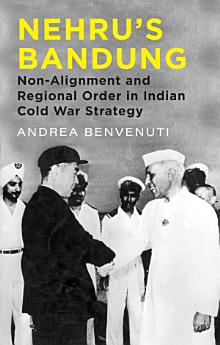Nehru’s Bandung: Non-Alignment and Regional Order in Indian Cold War Strategy
About this ebook
Relying on Indian, Western and Chinese archival sources, Nehru’s Bandung focuses on the policy concerns and calculations, as well as the international factors, that drove a sceptical Nehru to support Indonesia’s diplomatic push for such a gathering. It reveals how, in Nehru’s estimation, Bandung also served a further important purpose—securing China’s commitment to peaceful coexistence, without which stability in Asia would be illusory.
Nehru’s support for an Asian-African conference did not derive from an emotional commitment to Afro-Asian internationalism. Instead, it stemmed from a desire to promote a ‘third way’ in an increasingly polarised world, and to forge a stable regional order—one that would enhance India’s external security and domestic prosperity.
About the author
Andrea Benvenuti is Associate Professor in Politics and International Relations at the University of New South Wales, teaching twentieth-century international history at the undergraduate and postgraduate levels. He holds a DPhil in International Relations from the University of Oxford. His current research focuses on the Cold War in Asia.




